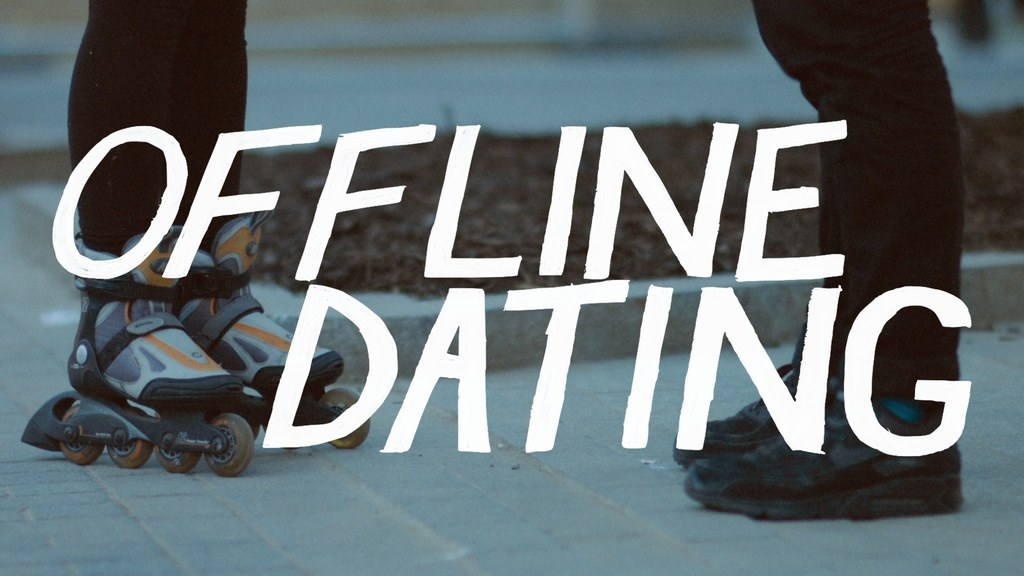Last month, filmmaker Samuel Abrahams decided to film his friend Tom Greaves' efforts to ask out women on the street.
View this video on YouTube
The experiment: to see what happens when you swap apps like Tinder for awkward exchanges IRL – a move from online to offline dating.
Since being uploaded to YouTube on 6 July, the video has amassed almost half a million views.

It has been written about by the Daily Mail, the Evening Standard, The Guardian, and a host of other outlets.

Some people found it sweet.
That Offline Dating video is amazing, really makes you think, although I imagine it helped that he's tall and handsome
And some really hated it.

There was some debate over whether the video exemplified harassment.
The guy in that offline dating video actually RUNS after a woman he's trying to ask out. I would take Tinder creeps over that any day
And several people called it "creepy".
Also really not a fan of the #OfflineDating video. Creepy man approaches women and asks them to stop what they are doing and date him. No.
The video crystallised a number of issues for me.

How did the "Offline Dating" project come about?
Samuel Abrahams: Tom is newly single and just downloaded Happn and then we were just kinda talking about the difference between your life on here and how you present yourself. It occurred to me that the best way for Tom to meet someone would be to start approaching them in real life and [that] I would love to have a camera there.
Before the rise of dating apps, would you have approached women IRL anyway?
Tom Greaves: It's something that you definitely think about doing. It's always terrifying, especially if you see someone and you fancy them – suddenly the stakes go through the roof and you fear rejection. You worry what you're going to say – you can't just go up to someone and say, "I like you. Do you want to go for a drink?"
But isn't that exactly what you did?
TG: That was the angle when we decided to do this, but previously it was just not something you do. It is confusing. Being that direct is very unlikely to work. I did think that maybe just being that open and honest might be like, not surprising, but seen as... I didn't want to manipulate, or come across as a smooth operator.
The video divided opinion — some people found it cute, while others found it creepy. How do you feel about the latter characterisation?
SA: The idea that interacting with strangers might be socially unacceptable seems very sad to me. Of course, it is all about how you do it.
TG: It is creepy, but I don't know if it's creepier to be direct or to kind of conceive of some plan to get them to go on a date with you.
At points you seem a bit intrusive, like with the woman who was reading her book in the park and the lady walking in the street with someone who looked like her boyfriend.
TG: You are going up to someone, you haven't been invited to speak or to meet. Should we be able to speak to someone we don't know? I always tried to be polite and respectful. It's become more and more strange to speak to someone in London. If there was more natural connection between people, then asking them out for a drink wouldn't seem as crazy.
Do you see how some may consider this to be harassment?
TG: You immediately get a quick sense if they are interested or not – I never persisted with it if I felt like it wasn't going anywhere. I can see how it can be annoying – you're faced with a situation where you have to turn someone down.
It's how it's done. If you are polite and respectful and also understand that there is no obligation... It's annoying if it's not what they want, that's the worst case, but maybe they find it flattering. I'm not saying that that's all women want.
Some people say the video exemplifies male entitlement, that it’s you feeling like you can just go up to any woman and interrupt what she is doing to get her to go out with you. How do you feel about that?
TG: I can understand it, but it's life, isn't it? People are always interfering in others'... The Metro is shoved in people's faces every day, you could say that's invading your space. Men are entitled to speak to someone – I think anyone is entitled to speak to anyone – but you're not entitled to a response.
But what if all men started approaching women this way? Would the world be a better place?
TG: Sometimes I'm answering questions people have asked about it: "What does this mean? How would you recommend people to now approach people offline? Is the logical conclusion of this that any guy is gonna go up to women and be like, 'Hey!'" It's difficult. I'm not an expert.
But what if the video was made from the perspective of a woman?
SA: We talked about it. I mean, there was a point where I was thinking potentially the film intercuts between, say, Tom, who is doing this, and this girl... Where was she from? Yeah, Amsterdam. And film with her for a weekend and see what reaction she gets.
TG: They are a lot more forward.
SA: Well, the thing is, she was a lot more forward, she started talking to us and I went with it because I was doing an experiment with film with that same idea. I think it would be a lot easier – I think girls aren't expected to do it, but I can tell you from a guy's point of view, it's great when they do.

